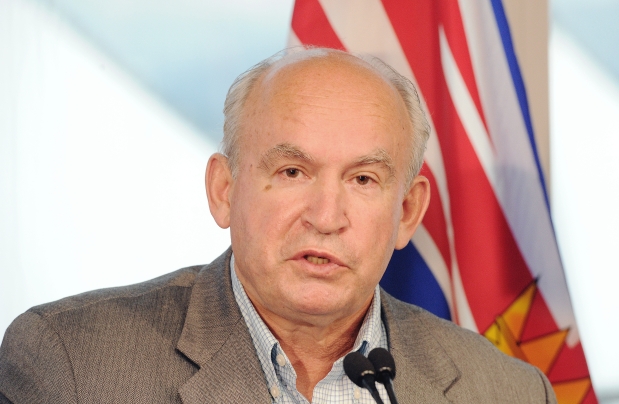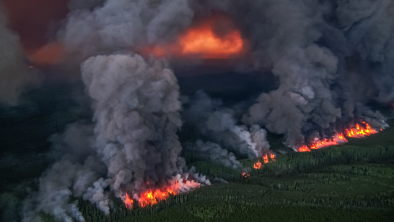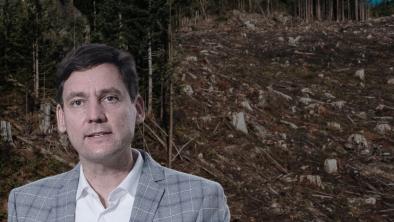Vancouver Island First Nation declares ‘tribal park’ to protect land
Sunday, April 13, 2014
Vancouver Sun

The Tla-o-qui-aht First Nation on Vancouver Island has used a unilateral tribal park declaration to try to control development on their traditional territories.
The Tranquil Valley tribal park in Clayoquot Sound — where Imperial Metals is investigating the possibility of a mine — is the third tribal park the First Nation has declared.
The Tla-o-qui-aht has declared this territory, about 20 kilometres northeast of Tofino, off limits to mining activity after the province issued a gold exploration permit to the Vancouver-based company last summer.
While tribal parks have not been recognized by the province, Parks Canada worked with the Tla-o-qui-aht on a “tribal parks establishment project” in one of its declared parks in 2009.
The tribal parks are meant to create a management system to protect the land, but also create sustainable jobs.
The Tla-o-qui-aht First Nation has done that, for example, with hatchery programs to improve fisheries, bear watching and run-of-the-river hydro projects.
The $15-million Canoe Creek Hydro is already operating, and a similar project is expected to begin soon.
But the Tal-o-qui-aht have also used the tribal park idea to push back on development such as jet boat-skiing on a lake near Tofino because it was not in keeping with their drinking water interests.
“We are kind of the founders of (tribal parks). It’s a unique model, articulating how we want to live,” Saya Masso, councillor and resource manager for the Tla-o-qui-aht First Nation, said Sunday.
The Tla-o-qui-aht, like most First Nations in B.C., have not resolved land claims. As a result, they have unceded aboriginal rights and title laid out in numerous court rulings.
“If there is one thing salient about all this is we just finished a tribal park planning unit that has jobs for 500 years, not 10 years of jobs and 500 years of impact,” said Masso. “That’s the premise: we are developing plans for our future. We regard fish as a value, the serenity of the area, and spiritual practices that we have to do.”
B.C. Energy and Mines Minister Bill Bennett said Sunday while there is no doubt First Nations have aboriginal rights when it comes to resource extraction, declaring a tribal park falls in a grey area.
And he noted the province’s existing laws allow companies to get exploration permits for mining.
Bennett also noted that before a mine can be built, there would have to be a comprehensive environmental assessment and discussion with First Nations.
He said he is not in favour of the unusual move of expropriating mining rights, which would be needed to declare a mining moratorium.
But Bennett, who met with the Tal-o-qui-aht last year, said the matter does need more attention.
“The way through this is with respectful engagement with the First Nation. I am going to try to get the First Nation and the company together with us, and start talking a little more and see what’s possible,” he said.
Imperial Metal officials could not be reached Sunday for comment.
The Tla-o-qui-aht First Nation was involved in declaring the first tribal park in the mid-1980s on Meares Island. They declared a second tribal park in 2009 in the Tofino area.
In 2011, the Doig River Nation in northern British Columbia announced plans to develop a tribal park that straddled the B.C.-Alberta border.
The Doig River Nation said the goal of the park was to try to protect the area, including the forests.
The Tla-o-qui-aht First Nation has been receiving support for its moratorium on mining in the area near Tofino.
Last week, Victoria’s city council passed a motion supporting the First Nation’s call for a moratorium on mining in its territory in Clayoquot Sound.
The District of Tofino council earlier passed a similar motion.
Environmental groups such as the Wilderness Committee have also supported the Tla-o-qui-aht First Nation’s efforts to have tribal parks recognized by the B.C. government.
“Clayoquot Sound is no place for a mine. The Tla-o-qui-aht are the original stewards of the land, and it’s good to see Victoria respect their leadership on this,” said Torrance Coste, of the Wilderness Committee.
Photo: B.C. Energy and Mines Minister Bill Bennett said Sunday while there is no doubt First Nations have aboriginal rights when it comes to resource extraction, declaring a tribal park falls in a grey area.


